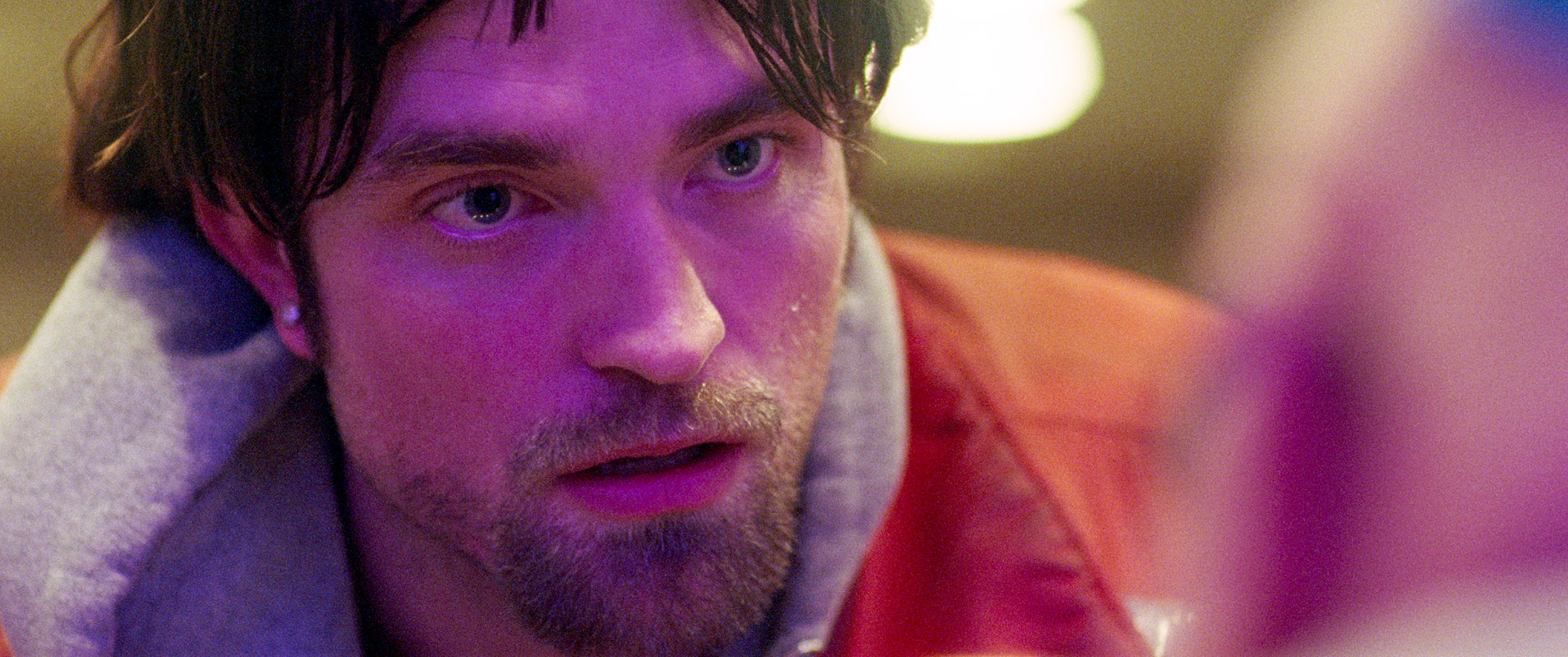Good Time” is a tense and hypnotic ride through the streets
of New York. Directed by up and comers Josh and Benny Safdie, the film tells
the story of degenerate bank robber Connie Nikas (Robert Pattinson) who tries to
get his mentally handicapped younger brother Nick (Benny Safdie) out of police
custody following a heist. However, over the course of one exhausting night,
with the cops on his trail, his life collapses into queasy neon lit chaos.
The Safdie Brothers, along with cinematographer Sean Price
Williams capture this chaos via kinetic and intimate hand held photography—
most of the time the characters are framed through tight, claustrophobic close
ups. Accompanying this oppressive visual style is a loud, grinding, frenzied
electronic score by composer Oneohtrix Point Never (complete with arcade game
bleeps and blorps and even horror movie strings) that makes even the most
mundane run through a deserted hospital hallway nail bitingly intense. Sometimes
the score can feel overbearing and unnecessary, especially when it blares up
during a casual conversation, undercutting the drama. But by and large it gives
the film an eerie, otherworldly dimension.
“Good Time” finds a
sweet spot between rough around the edges realism and a disorienting, semi
psychedelic stylishness. On the one hand, it uses handheld cameras, real
locations, a low budget, and nonprofessional actors mixed in with established
ones. The performances are energetic but natural, while the dialogue sounds conversational
and unscripted. At the same time, the film is very deliberate in its frenetic
editing, score and narrative tightness. The film is both freewheeling and
meticulously crafted-- a dreamy and gritty urban odyssey.
Narratively, the picture is a high-octane tour through
dingy, unglamorous New York and a visceral, dour crime film (a sort of modern, ADHD
tinged “Mean Streets”) featuring a truly detestable screwup protagonist.
From the very beginning Connie is actively unlikable. He
drags Nick out of a psychiatric program that he thinks is damaging to Nick and
proceeds to immediately throw him into harms way, via the bank robbery. Connie
is reckless and self-centered. He sets out on his mission to bail Nick out of
jail, relying on the generosity and resources of friends (his older girl
friend, played by Jennifer Jason Leigh, tries to use her mother’s credit card)
and random strangers. In his reckless and single-minded ways, Connie screws
over just about every person he comes into contact with, including a sixteen-year-old
girl (played by Taliah Webster). He’s a running disaster.
It can be difficult to watch “Good Time” because of all
this; many times I wished for Connie to get apprehended or simply hit by a bus.
He’s not even a sympathetic or a tragic figure and there isn’t much character
growth. Scene after scene he continues on a downward spiral, on a mission that
was doomed from the start. By the end, I rooted for his inevitable demise. However,
what makes Connie’s disastrous odyssey at least partially fascinating is his delusional
and gradually destructive entitlement. Connie spends the entirety of “Good
Time” taking advantage of others (taking their cars, phones, apartments) while
still viewing himself as the victim--blaming others for his own idiotic
screw-ups. At one point he even accuses another person he meets named Ray
(Buddy Duress) of being entitled and dependent on welfare. Uh, didn’t you just
force your girlfriend to use her mother’s credit card for bail money a few
hours ago?
As the film moves along Connie’s sense of entitlement strengthens
and his actions become increasingly heinous. His lowest moment comes near the
end when he and Ray break into a closed amusement park to retrieve a hidden
sack of drug money. When he encounters the security guard, (played by Oscar
nominee Barkhad Abdi) Connie beats him to a pulp, force feeds him liquid LSD
and takes his uniform as the cops arrive, essentially stealing his identity and
framing this poor man for his own crime.
Pattinson is terrific as Connie—nervous and unhinged in a
way that never turns into caricature or becomes melodramatic. Like Kristen Stewart,
he’s blossomed into a superb actor post “Twilight,” able to disappear
completely into every role he takes on. As gloomy and infuriating as “Good
Time” can be, Pattinson’s commitment and energy to such an unpleasant
character, along with the Shafdi Brother’s kinetic style, make it intense and
absorbing.
B



No comments:
Post a Comment